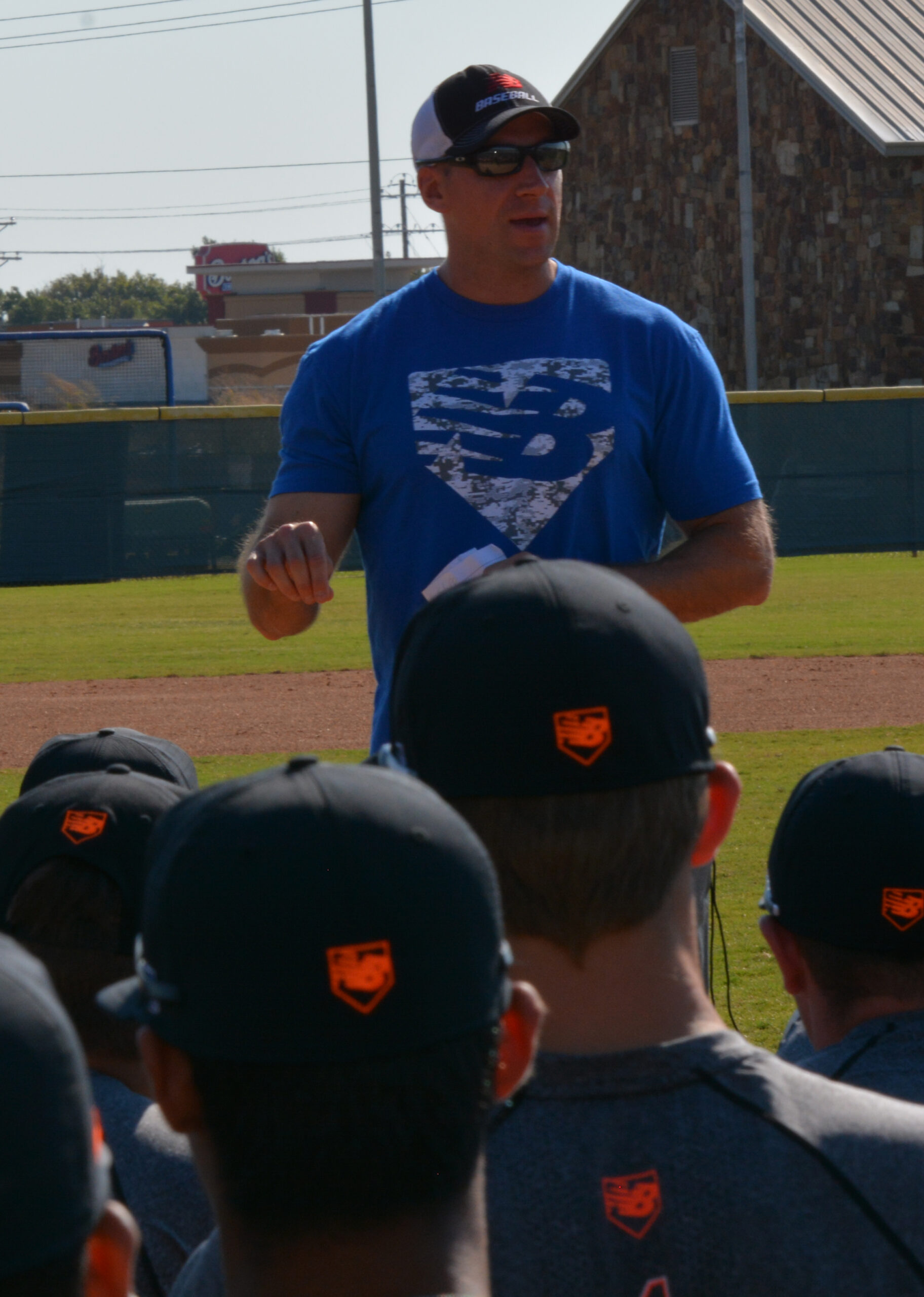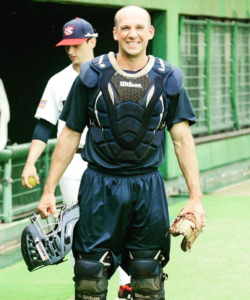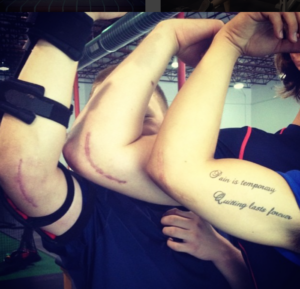
25 Questions to Ask During the College Baseball Recruiting Process
When I got into the strength and conditioning field, I always assumed my job would just be about getting athletes bigger, stronger, faster, leaner, and healthier. And, I was right that those would be constituents of my job, but I failed to realize that there was actually a lot more to consider if I wanted to be successful in the private sector and working with up-and-coming baseball players.
Those unexpected responsibilities included learning about the Major League Baseball Collective Bargaining Agreement, interacting with advisors/agents, helping kids plan out their competitive year, creating a solid physician and physical therapist network, and even jumping in to catch some bullpens.

However, none of these tasks could possibly be more important than the interactions I have with a lot of high school baseball players as they work to select the right college/university for them. While there are a lot of college advisory services out there, very few of them truly understand the athletic side of things; they’re more heavily focused on the academic and social components, as there is no way they could ever possibly keep track of what each college baseball (or football, hockey, basketball, or whatever) program is doing. Coaching staffs change, universities move to different conferences, new facilities/fields are added, and new training methods are established. With that in mind, here are 25 questions I ask of all our kids who approach me about the college recruiting process:
1. Will you have an opportunity to play right away? If not, are you comfortable waiting?
It’s very easy to fall in love with a campus and the thought of playing in front of thousands of fans, but “s**t gets real” when you’ve been riding the pine for your first two years of college. Find out who is on the team who’ll be playing ahead of you, as well as who else they are recruiting in your class at your position.
This, for me, is also a roundabout way of asking a kid if he is really good enough to play at a school. If you didn’t even pitch for your high school team, chances are that you aren’t going to be able to pitch for a College World Series team. In this instance, you’d be better off going to a team that will provide the innings you need to develop.
2. Do you have aspirations of playing baseball after college?
Will this program facilitate that objective? If it’s going to do so, you need to see a history of players drafted.
3. Have you spoken to alumni who have played at these colleges (or for these coaches at different schools)?
Do they speak highly of their experiences, or do they rip on the coaches? Do they go back to their college town to visit often?
4. How would the coaching staff describe their approach to coaching to you?
Some guys do well with the “in your face” coaching style, and others struggle with the regular confrontation.
5. What is the program’s track record of success with developing players like you?
What do they do that will make you a better left-handed pitcher, second baseman, or catcher? Do they have examples?
6. What (if any) scholarship or financial aid amount are you being offered?
College isn’t cheap. While full rides are rare in college baseball, the difference between a 25% scholarship and 50% scholarship can work out to $60,000 over the course of four years. Don’t forget transportation costs to and from campus several times per year, too.

7. How tenured are the coaches, and do they see themselves leaving the school in the next few years?
At the Division 1 level, while you have some wiggle room (usually) in leaving a school if the head coach that recruited you leaves, you don’t get that luxury with pitching and hitting coaches.
8. How tenured is the team athletic trainer, and what is his/her approach to treatment?
Does he/she just fill Gatorade buckets and stay out of the way, or get involved with manual therapy and individualized rehab programs?
9. How tenured is the team strength and conditioning coach, and what is his/her approach to training both in-season and off-season?
Do guys get bigger and stronger over their four years, or do they just run poles and waste away? Observe a lift: is he/she a respected figure in the players’ lives? Also, is he/she considered a true part of the coaching staff to allow for maximum synergy, or does the head coach never interact with him/her? Are players on unique programs based on their positions and injury history, or does everyone do the same?
Hint: if the answer to every question is “clean, squat, bench,” run away. Quickly.
10. How successful are the coaches in placing players with competitive, well-managed summer teams?
Sadly, summer baseball becomes less and less developmental every year. Fortunately, there are still some good summer coaches out there; is your coach placing you with those coaches?
11. How are the facilities, and will there be any construction going on during your college experience?
If they’re building a new field, you might be playing elsewhere for your home games. New weight room? You might be pushing cars in the parking lot in the middle of winter (although that may be a good thing for some of you).
12. What is a program’s track record in terms of injury rates?
Are they blowing arms out left and right? Or, are guys avoiding surgery while pitching more effectively than ever?

13. What were starting pitchers’ pitch counts over the past year?
Are they consistently sending guys out there for over 120 pitches? While it’s not exhaustive, this is a cool pitch count page that looked at D1 programs across the country back in 2014, but it hasn’t been updated in recent years.
14. How tough of an adjustment socially will it be for you?
If you’re a New Englander headed to the Deep South, expect it to be an adjustment. The adjustment is similarly challenging if you’re a Southerner headed North. Are you prepared for that? A new social scene at the same time as a new coaching staff can overwhelm some guys.
15. Do they have the academic programs you want?
Sorry to burst your bubble, but only 2% of guys drafted actually make it to the big leagues. That essentially works out to one guy per team pear year. And, among the guys who make it to the big leagues, very few play there long enough to be financially set for life. In other words, there is a 99.99% chance you’ll be employed in some capacity after baseball, so you need to prepare for it. Regardless of what our guys opt to study, I encourage them to take some finance courses, as everyone needs to understand money management.
16. Do they have a solid academic support staff in place if you need it?
Do you have a learning disability that warrants special assistance? Do you need organized study halls to help with getting your work done? Or, do you just want people to stay out of your way?
17. What is the alumni network like?
Will it help you to get internships or employment after graduation? Or, will you have to head to the local prison to interview them?
18. Does the coaching staff get out and attend different conferences to improve at their craft?
Are they teaching the same things they taught in 1978, or are you being introduced to more forward-thinking concepts? “New” isn’t always better, though, so that’s why you ask the questions: it gives them a chance to provide rationale for their methods.
19. Are the hitting/pitching coaches more hands-off, or do they want to start tinkering with mechanics to solve problems they already see with your swing/delivery?
College coaches always see more things that need to be addressed than high school coaches ever can. They get more hours with you, and they see you against better competition that may expose your weaknesses. These weaknesses obviously need to be addressed. However, how much will you be abandoning the horse that got you there in the first place? Is it going to be tinkering or overhauling, and which are you willing to commit to?
20. How is the food on campus?
The food always tastes good…for the first month. Then, most people get sick of it. Don’t become one of those people.
21. Who is the team doctor, and what is his background and accessibility?
If you’re there four years, chances are that you’ll roll an ankle or get hit by a pitch at some point. Is the team doctor readily accessible, or do you have to book an appointment and then wait three weeks to see him? Also, does he have a solid understanding of the management of overhead throwing athletes? Many doctors don’t.
22. How competitive is the conference in which you play?
If you can go out and hit .500 or have a 0.00 ERA as a freshman, you probably aren’t being challenged.
23. Have you watched this team play a game and practice?
Does the team go through a thorough warm-up, or do they just roll in, do ten seconds of arm circles, and then get to it?
Do players look coaches in the eye when they’re being coached?
Do players cheer in the dugout, or is it completely silent?
I had one college kid tell me that his head coach didn’t show up for a single fall practice; the assistant coach ran the entire thing. Unbelievable!
24. What kind of throwing programs and pitch selection does a team use?
If you’re a long toss guy, go somewhere that does long toss. If you’ve thrived with weighted baseballs, go somewhere that integrates them in the throwing programs. If you like to chuck ninja stars, go somewhere that you can fight crime.
If you’re a guy with a history of elbow pain, don’t go to a school where all pitchers learn sliders and are forced to throw them 60% of the time.
25. What is the team’s graduation rate?
Graduation rate can definitely be impacted by a number of factors, including how many guys are drafted, but don’t return right away to complete their degrees. As an interesting (and scary) fact, only 4.3% of those who have played in the big leagues this year have a college degree. Still, graduation rates are something about which you should ask because it’s a question that gives a coach a chance to show you what emphasis he places on academics.
In typing this up, I rattled all these questions off in under five minutes, and the truth is that there are a lot more. The set of questions one asks will always be unique to one’s situation. The only commonality is that kids should ask questions – and lots of them, as this is going to be 3-4 years of your life.
As an important addendum, it’s important to realize that there isn’t a single program in the country that is going to give you the exact perfect answer you want on all these questions. Your goal is to find the best fit, not the perfect fit. With that said, though, you are committing to the program as a whole, not just the parts of which you approve. To that end, you’ll need to prioritize certain things depending on your circumstances:
If money is tight in your family, the scholarship/financial aid question might be most important.
If you have a history of injuries, the athletic trainer/strength and conditioning coach/team doctor questions might be the most pertinent.
If you want to play baseball in college, but not beyond, the questions about graduation rates and alumni networks will be significant.
If you have a very funky delivery that’s worked well for you and are afraid a pitching coach will change it, you need to ask those pitching coaches if they are open to that arrangement. This scenario was made famous when Tim Lincecum headed to the University of Washington with his unique delivery.
There really are no right or wrong answers – but there are definitely a lot of questions that should be asked along the way. One friendly suggestion I make to players is to make sure that these questions come from you and not just your parents. Parents will have questions of their own, but they should never dominate the conversation; young athletes need to take a proactive role in learning about what could be their lives for four years. It not only shows maturity to the recruiting coaches, but also makes sure that you get the answers to the questions that are most important to you.



